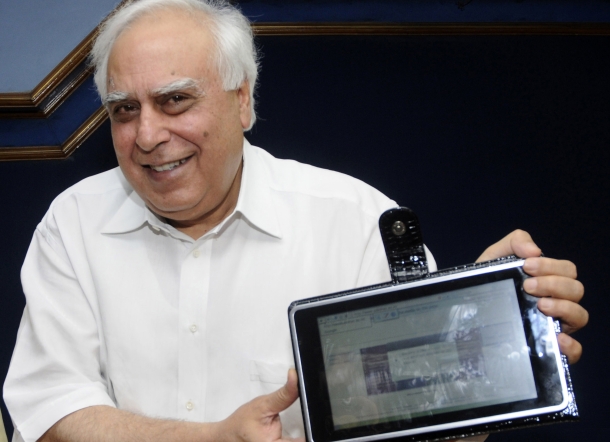Cheap computing: $35 solar-powered laptop unveiled in India


While there continues to be plenty of fuss and noise being made about Apple's iPad computer, it doesn't change a crucial fact about the ultimate direction of personal computing. That is, all our computing is off the Web, and the hardware we use to access the Web is almost irrelevant, and to a large degree, throwaway.
That's why an announcement out of India this week, reported in CNET and InformationWeek, may be more indicative of the direction of personal computing than Apple's sleek new gadgets.
India's Human Resource Development Minister Kapil Sibal announced that developers at the Indian Institute of Technology and the Indian Institute of Science teamed up to develop an iPad-like device, that carries a value of about $35.
Another interesting feature: the device is powered by a solar panel -- no electricity required -- at least in the daylight. As with any stripped-down laptop, the device supports the essentials: Web browsing and word processing. No cost for the operating system, either -- it's powered by Linux open source software.
Reuters quotes Sibalas pricing the machine at $35, but that could even go lower -- the Indian team will attempt to bring the cost down to $20, and even $10 per machine:
"We have reached a (developmental) stage that today, the motherboard, its chip, the processing, connectivity, all of them cumulatively cost around $35, including memory, display, everything."
The low-cost machine is intended for India's student population, but may see commercial distribution as well. InformationWeek notes that "at least one Taiwanese company as well as some unnamed international manufacturers have shown interest in the tablet."
The trend toward cheap, throwaway computer hardware has been accelerating in recent years. Consider the fact that smartphones, which are the smallest form-factor computers, are essentially given away for free, with charges shifted to the network access via two-year contracts.
Since this is still in the prototype stage, the Indians may not get as low as $35 in manufacturing and parts costs as quickly as they want, but the bottom line is that the content and information behind the device is where the value is.
This post was originally published on Smartplanet.com